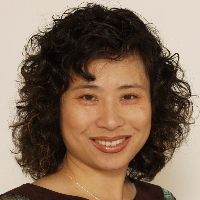Our Counselors Answered:
Is there a resource with information on DSS offices throughout the country?
 Jane McClurePartnerMcClure, Mailory & Baron Educational Counseling
Jane McClurePartnerMcClure, Mailory & Baron Educational Counseling
Is there a resource with information on DSS offices throughout the country?
Here is my video response to the question.
 王文君 June ScortinoPresidentIVY Counselors Network
王文君 June ScortinoPresidentIVY Counselors Network
university websites are good resources for you first
you may check on department of education website first and then university’s website next.
 Tam Warner MintonConsultantCollege Adventures
Tam Warner MintonConsultantCollege Adventures
Colleges for LD students
There are several college guides for students with Learning Disabilities. K&W Guide to Colleges for Learning Disabled Students, Peterson’s also has a guide. There are many guides out there, and it is a good place to start.
 Laura O’Brien GatzionisFounderEducational Advisory Services
Laura O’Brien GatzionisFounderEducational Advisory Services
Learning Disability Resource
I highly recommend Marybeth Kravets and Imy F. Wax’s book “The K & W Guide to Colleges for Students with Learning Disabilities or Attention Deficit Disorder” which includes information of the level of services provided to students with learning disabilities.
 Donovan BlakeLead ConsultantGriffin Blake Educational Consulting
Donovan BlakeLead ConsultantGriffin Blake Educational Consulting
Is there a resource with information on DSS offices throughout the country?
The Peterson’s Colleges With Programs for Students With Learning Disabilities or Attention Deficit Disorders is a great reference. There are Educational Consultants that specialize in working with students with disabilities. In Chicago, IL they host a CHOICES Fair, which is a disability college fair.
 Bill PrudenHead of Upper School, College CounselorRavenscroft School
Bill PrudenHead of Upper School, College CounselorRavenscroft School
Is there a resource with information on DSS offices throughout the country?
There is no one definitive guide or listing of Disability Support Services (DSS) offices if for no other reason than the fact that while there are legal aspects of the Americans With Disabilities Act to which all school must respond, how they do it can and will vary in the context of their own institutional operations. Given the nature of the law there are certain things that every school must provide, so each of them has their own approach to the legal requirements to which they must respond as well as to their own programmatic offerings. Checking a school’s website should provide plenty of information about their office of DSS and how they handle the various aspects of the issue. Ask questions and be sure you are comfortable with how they address your concerns.
 Allen Regar
Allen Regar
Is there a resource with information on DSS offices throughout the country?
There are many. Peterson’s puts out an excellent book titled “Colleges for Students with Learning Disabilities or AD/HD”. This guidebook discusses such important topics as what students with learning differences can expect in college, some legal issues surrounding learning disability programs, documentation, and differences between high-school and college requirements for qualifying for learning disabilities. Additionally, it describes the difference between “Structured” or “Proactive” programs and “Self-Directed” or “Decentralized” programs. It also provides profiles for two-year and four-year colleges that have either of these types of programs.
Another fantastic resource, although more about having a learning disability in college generally than about DSS offices in particular, is LD Online. I am including a link here http://www.ldonline.org/indepth/college to direct you right to the resource.
Most importantly, however, it is essential to be in communication with the educational professionals both at your high school and at the colleges where you are interested in applying. The DSS offices themselves always have the most current information about college policies and federal, state, or local guidelines that inform them. If you have a trusted resource at school, such as a case manager, guidance counselor, or special education teacher, ask them about certain colleges and what the DSS office there may have to offer you.
 Reecy ArestyCollege Admissions/Financial Aid Expert & AuthorPayless For College, Inc.
Reecy ArestyCollege Admissions/Financial Aid Expert & AuthorPayless For College, Inc.
Is there a resource with information on DSS offices throughout the country?
The National Center on Workforce and Disability is the place to start your specific search.
 Renee Boone
Renee Boone
Is there a resource with information on DSS offices throughout the country?
The K&W Guide to Colleges and Universities by Princeton Review is an industry standard. I also like “Learning Outside the Lines by Mooney and Cole. For Autism and Asberger Syndrome, Ann Palmer’s work is insightful.
The web can also help students identify ways to approach colleges with their requests for specific types of support. For example, http://celiacsatcollege.com/ addresses issues of living on campus with Ciliac and Yahoo! offers a blog for students with Chron’s.
 Renee Boone
Renee Boone
Is there a resource with information on DSS offices throughout the country?
The K&W Guide to Colleges and Universities by Princeton Review is an industry standard. I also like “Learning Outside the Lines by Mooney and Cole. For Autism and Asberger Syndrome, Ann Palmer’s work is insightful.
The web can also help students identify ways to approach colleges with their requests for specific types of support. For example, http://celiacsatcollege.com/ addresses issues of living on campus with Ciliac and Yahoo! offers a blog for students with Chron’s.
 Renee Boone
Renee Boone
Is there a resource with information on DSS offices throughout the country?
The K&W Guide to Colleges and Universities by Princeton Review is an industry standard. I also like “Learning Outside the Lines by Mooney and Cole. For Autism and Asberger Syndrome, Ann Palmer’s work is insightful.
The web can also help students identify ways to approach colleges with their requests for specific types of support. For example, http://celiacsatcollege.com/ addresses issues of living on campus with Ciliac and Yahoo! offers a blog for students with Chron’s.





